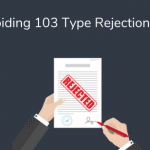
The world is anxiously waiting for revolutionary change as Joe Biden, the 46th President of the United States, and Vice President Kamala Harris prepare to make history. Topics of interest focus on how the Biden-Harris administration will deal with the impacts and consequences of the nation’s intellectual property (IP) law and policies.
This article provides insight as major publications post comments and concerns about Biden’s IP policy approach. However, they each share perceptions that speak to the need to fortify U.S. IP protection as an incentive to continue developing inventions, technology innovations, and research patents to retain America’s lead in advancements.
U.S. businesses and inventors are concerned about how IP laws and policies could influence opportunities for supplying goods and services to support continued growth in commerce within the public and private market sectors. Therefore, president Biden’s plan needs to facilitate a more efficient patent filing process that secures and protects IP transfer and trading practices within domestic and international markets.
Overall, the community’s consensus sees the next four years highlighting the Biden-Harris administration’s effort to improve U.S. IP policies at home and abroad, contributing to America’s economic recovery.
Challenges for the U.S. – How Will Harris Influence IP Law in the Biden Administration? – The Diplomat
The Diplomat – Contributing author Robert Farley commented on the influence that Vice President Kamala Harris brings to the table. Securing her position in U.S. history as Vice President, the post states how “Harris would influence both the executive branch policy and legislation while presiding over a closely divided Senate.”
As a sponsor of the DEFEND ACT during her tenure as Attorney General of California, Harris legally pursued producers in India and China for IP violations based on fair trade and law-abiding principles. In her current position as U.S. Vice President, there is no doubt that her influence will carry both inspiration and encouragement for patents filed in the United States.
The certainty of the Biden-Harris administration’s views on IP law and policies will focus on leveling the playing field for American enterprises and research organizations looking to gain a fair share of the supply markets.
Ruling on Technological Policies – Gina Raimondo pledges tough line on China – The Washington Post
Washington Post – Covering world business Jeanne Whalen reported on the Commerce Department nominee Gina Raimondo, pledging to join the fight against unfair trade practices. However, Raimondo did not share any details on how she planned to proceed – instead, Rhode Island’s governor said, “I believe America has to lead in standards-setting, particularly in new technology.” Raimondo continued, “It’s one way we could help Americans to compete, lead and win.”
China is the target in this article, charged with intellectual theft and misuse of patents with the intent to use stolen technology as a source to spy on other nations. Historically, the United States has held the number one position globally for filing the most international patents comprised of technological advancements, making it a primary target.
China misjudged the strength and resilience of the United States as a global competitor in the trade as U.S. enterprises continued to develop technology and venture into new research discoveries.
Foreign Competitor Enforcement – Biden’s Commerce Pick Vows to Combat China and Climate Change – The New York Times (nytimes.com)
New York Times – Ana Swanson, who covers trade and international economics, reported on Rohde Island’s Governor, Gina Raimondo’s discussions on the Department of Commerce’s “Entity List” prohibiting companies from selling American products and technology to individual foreign firms without a license.
The Department of Commerce added the names of IP violators to the Entity List to protect America’s technology and business invention patents, allowing organizations to pursue open and fair markets actively. In addition, the Department pledged to continue its enforcement of foreign attempts at intellectual property theft and inappropriate (unlawful) acquisitions of patented data.
The article cites Raimondo’s praise by her peers for her public and private interest, dedication to dealing with the pandemic, increased investments in U.S. businesses, and promote marine and space economies.
Raimondo’s comments and the Department of Commerce’s actions to protect American intellectual property encourage new inventions and continued research advancements to drive the U.S. economy forward.
The U.S. Patent System – Innovation Alliance Urges Biden Administration to Support Patent Rights (ipwatchdog.com)
IPWatchdog – The article mentions the disarray in the U.S. patent process. Brian Pomper, Executive Director of the Innovation Alliance, sent a letter to President-elect Biden and Vice President-elect Harris outlining the need to support patent rights to meet enforcement challenges brought on by foreign competitors.
President Biden’s Plan for Rural America mentioned similar upsets of the U.S. patent process, declaring a recommended change on how patents are awarded. In one area pertaining to research, President Biden proposed that agricultural patents granted to private entities for inventions derived from publicly funded research deprive the public of duly earned benefits.
To protect the American people, “Biden encourages the U.S. to re-invest in land grants for universities’ agricultural research so the public, not private companies, would hold title to agricultural research patents.”
Beyond the U.S. Borders – Biden must do better than Trump’s tariffs in challenging China on intellectual property | The Hill
The Hill – Marc L. Busch, Karl F. Landegger Professor of International Business Diplomacy at the Walsh School of Foreign Service, Georgetown University, addressed two IP concerns associated with the forced-technology transfer through joint-venture and government subsidies funding research and development.
China was accused of forcing businesses to hand over their intellectual property to access their market. China then claimed the technology benefited from production and sale. Developing a legal partnership is a business strategy that allows the patent holder to sell or license the intellectual property rights to an authorized party for a specified duration and receipt of payment, royalties, or fees.
Busch suggested it may be a viable solution for new or existing patent holders to participate in secondary market spillovers as the concept offers economic benefits while spearheading new market patent developments.
Trade Secrets at Home – Biden Plans to Ban Noncompete, No-Poaching Clauses (shrm.org)
SHRM – Society of Human Resource Management responded to an issue closer to home for U.S. employers and its workforce. President Biden’s platform included eliminating or at least minimizing employee non-compete clauses and no-poaching agreements.
Biden, specifically, said he would support federal legislation to eliminate most non-compete agreements – allowing only those necessary to protect a narrowly defined category of trade secrets.
Employer IP practices came into play as standard employment clauses and agreements to legally deter employees from sharing company information or competitors from soliciting employees to obtain trade secrets or data. However, over time, employment IP protection took on a broader role that interfered with workers’ rights to seek other employment in similar industries.
Employers could secure and protect patented investments by detailing the IP clauses and agreements to guard new technology, confidential information, trade secrets, inventions, or brand data.
A Quick Wrap Up
In summary, President Biden made two key points in his “Made in America” program; to provide incentives and support companies sourcing and manufacturing products within the United States and to protect U.S. patent rights by challenging attempts to steal American intellectual property.






No comment yet, add your voice below!